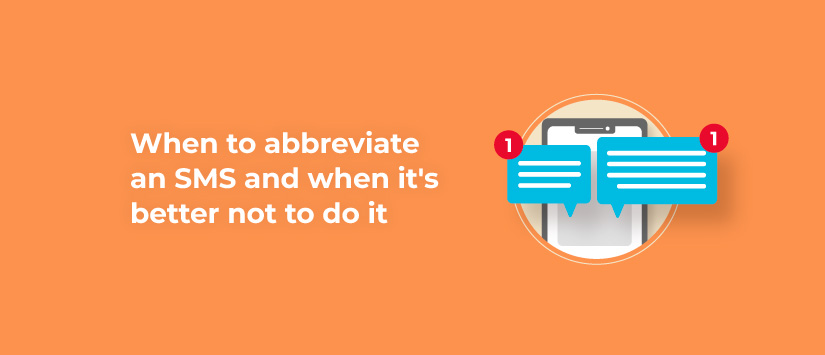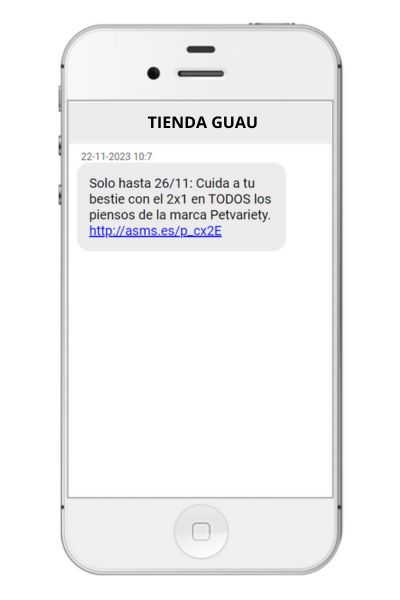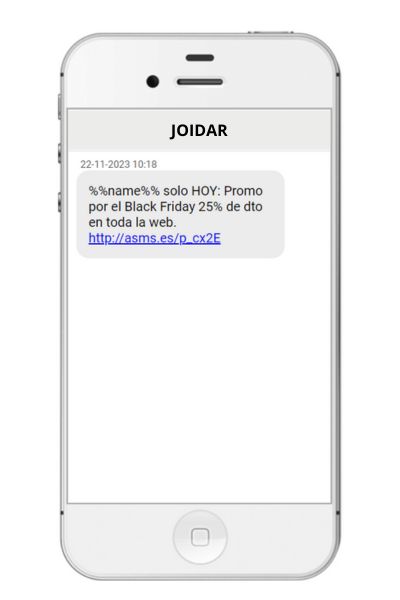Category: SMS Marketing

Text messages (SMS) are short due to technical limitations, but you can always send two if the character limit is exceeded. Since this involves doubling the cost, it's common to debate whether to concentrate the message in one, typically at the expense of using abbreviations (although removing accents also reduces it). However, choosing whether to shorten some words is a brand-related decision tied to verbal identity, not the message encoding.
First, there was SMS language, but abbreviating words is commonplace in social media and instant messaging. Even substituting them with emoticons, emojis, and reactions to avoid having to write a full sentence like "I agree with what you're saying."
Users are always looking for new forms of communication, especially the younger generations. They often lead these changes, and it's crucial to listen to them to use their words and style. This applies to any message, but especially to SMS, as they are most comfortable communicating through mobile devices.
Therefore, companies addressing them should express themselves in the same style. It's a way to get closer and show them that you speak their language, understand them, and can be trusted. For example, when drafting a buy one, get one free offer, you can refer to their "best friend" using "BFF" (abbreviation for Best Friend Forever) or "bestie." This not only saves characters but also demonstrates that you are a brand for them.

Abbreviations are part of slang, and there are sectors where their use has naturally become part of written communication, especially anglicisms. Reading "FYI" in an email or "Tel." in a form is so common that it wouldn't be strange for a company to use them in communication. The same goes for "promo," "dto," "+info," or any other convention specific to each sector, such as city names in the tourism industry.

Although the decision seems age-related, the examples above actually affirmatively answer the question: Will the user understand it because you speak their language? If the answer is negative, it's better not to abbreviate words that may confuse or create misunderstandings, as it would impact the company's image, giving the impression that it's not tailored for that audience.
On the other hand, there are traditionally more formal sectors where it would be unbelievable to start using out-of-place abbreviations. However, some abbreviations may be entirely natural. For example, in a meeting with a lawyer, you can abbreviate the time ("D: Dec 10, H: 4pm" or just "12/10, 4 pm") or a medical center can indicate its address by removing "c/" to save characters. Still, it would be strange if they used "PSI" or "pq" instead of "Reminder" or "because."
The simplest solution for companies needing more characters for their SMS without causing conflicts and converting effectively is to include a link to a website where all the details that don't fit in the message are explained. For example, details of a meeting that requires prepared documentation or the fine print of a contest.
Finally, our advice is to review your database and the information you have about your customers. Perhaps it's worth segmenting and sending two messages written differently, tailored to each type of user.
Do not miss anything from our blog and join our Telegram https://t.me/acrelianews
Haven't you tried Acrelia News yet?
If you like this post, you will like much more our email marketing tool: professional, easy to use.